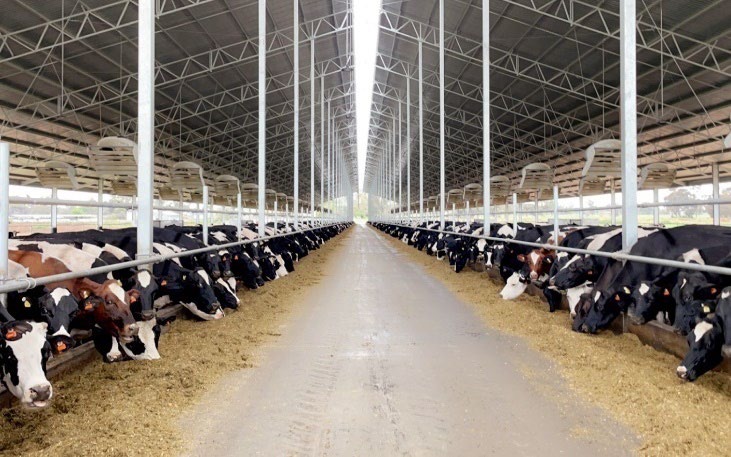Heat stress is a profound issue in the New South Wales and the broader Australian dairy industry. Cows in hot, humid conditions eat less, resulting in reduced milk production and loss of bodyweight, potentially leading to health and reproductive challenges.
Australian dairy farmers use a range of strategies to manage their herds in hot, humid weather. These include fans, sprinklers and management adjustments to diet, mating and daily routine.
This project aims to uncover the most effective ways to prevent or minimise the effects of hot, humid weather on dairy cows.

Benefits
The findings will provide a clearer understanding of the acute and long-term “lag” effects of heat stress on dairy cattle. This information will also better equip farmers to manage and plan for heat stress events, including the days following.
Better heat stress management will also improve dairy cow health, reproduction, production, and welfare. This will make a positive contribution to the profitability of NSW dairy businesses and reinforce NSW dairy farmers’ social license to operate.
In addition, identifying the heat mitigation strategies which are best suited to specific dairy systems will support the development and improvement of management approaches and facility design.
Progress
Project Update November 2023
Dairy UP’s P2 project aims to unlock the potential of dairy cows to achieve their genetic potential under NSW conditions.
Abstract (2025 American Dairy Science Association)
Evaluation of the effects of an enzymatic and biological additive on bedding in compost-bedded pack barns in Australia.
Abstract (2024 American Dairy Science Association)
Shifts in rumen profiles of Holstein steers fed antimicrobial and starch diets.
Publication (September 2024)
Milk consumption and behaviour of calves in automated calf feeders as early indicators of weaning liveweight.
Publication (June 2020)
Variation in milk production, fat, protein, and lactose responses to exogenous feed enzymes in dairy cows.
Project Lead

Dr Ian Lean
Managing Director | Scibus
You can help
If you are interested in this project or think you may want to be involved at some stage, please contact Ian Lean on ianl@scibus.com.au
Project Team:
-
- Andrew Lean – Scibus – andrewl@scibus.com.au
- Helen Golder – Scibus – heleng@scibus.com.au
For more information contact Dr Ian Lean (ianl@scibus.com.au) or Prof. Yani Garcia (sergio.garcia@sydney.edu.au). This research is funded by the Dairy UP initiative (https://dairyup.com.au/) and it is expected to benefit all farmers with kikuyu pastures.


